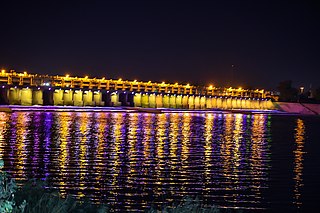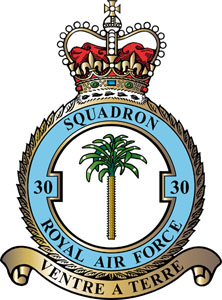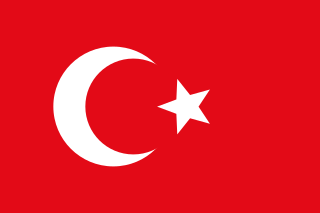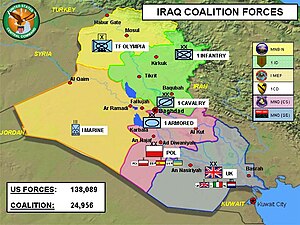
Kūt, officially Al-Kut, also spelled Kutulamare orKut al-Imara, is a city in eastern Iraq, on the left bank of the Tigris River, about 160 kilometres south east of Baghdad. As of 2018 the estimated population is about 389,400 people. It is the capital of the province long known as Al Kut, but since the 1960s renamed Wasit.

The siege of Kut Al Amara, also known as the first battle of Kut, was the besieging of an 8,000 strong British Army garrison in the town of Kut, 160 kilometres (100 mi) south of Baghdad, by the Ottoman Army. In 1915, its population was around 6,500. Following the surrender of the garrison on 29 April 1916, the survivors of the siege were marched to imprisonment at Aleppo, during which many died. Historian Christopher Catherwood has called the siege "the worst defeat of the Allies in World War I". Ten months later, the British Indian Army, consisting almost entirely of newly recruited troops from Western India, conquered Kut, Baghdad and other regions in between in the Fall of Baghdad.

Wasit Governorate is a governorate in eastern Iraq, south-east of Baghdad and bordering Iran. Prior to 1976 it was known as Kut Province. Major cities include the capital Al-Kut, Al-Hai and Al-Suwaira. The governorate contains the Mesopotamian Marshes of Shuwayja, Al-Attariyah, and Hor Aldelmj. Its name comes from the Arabic word meaning "middle," as the former city of Wasit lay along the Tigris about midway between Baghdad and Basra. Wasit city was abandoned after the Tigris shifted course.

The Peace Companies are an Iraqi armed group linked to Iraq's Shia community. They are a 2014 revival of the Mahdi Army that was created by the Iraqi Shia cleric Muqtada al-Sadr in June 2003 and disbanded in 2008.

Number 30 Squadron of the Royal Air Force operates the Airbus A400M Atlas transport aircraft and is based at RAF Brize Norton, Oxfordshire.

The Mesopotamian campaign was a campaign in the Middle Eastern theatre of World War I fought between the Allies represented by the British Empire, troops from Britain, Australia and the vast majority from British India, against the Central Powers, mostly from the Ottoman Empire.
The military history of Iraq, due to a rich archaeological record, is one of the longest in written human history. The region of Iraq, which used to be Mesopotamia, has been referred to as the "cradle of civilization", and wars of conquest have been recorded in this region as far back as the third millennium BC. Because of its geopolitical dominance and ideology based in world domination, the Neo-Assyrian Empire is by many researchers regarded to have been the first world empire in history. The area possesses strategic value, initially for the rich, fertile agricultural region in the Mesopotamian plain, and more recently for large petroleum deposits and access to the oil-rich Persian Gulf. The present territory of Iraq lacks significant strategic barriers, making it difficult to defend against foreign invasion.

The Second Battle of Kut was fought on 23 February 1917, between British and Ottoman forces at Kut, Mesopotamia.

Iraq's 18 governorates are subdivided into 120 districts (kaza).
Operation Alborz, more commonly known by the code-name Operation Kaman 99, was an operation launched by the Iranian Air Force in retaliation to Iraqi surprise aerial attacks on Iran the day before which marked the beginning of the 8-year-long Iran–Iraq War. Involving nearly 200 aircraft, it is considered the largest operation carried out by the IRIAF. The outcome was clearly successful, as the Iranians achieved Air superiority for the first years of the conflict.
The 1992–93 Iraqi National Clubs First Division was the 19th season of the competition since its foundation in 1974. The league title was won by Al-Talaba for the fourth time in their history. The league was 69 rounds long in total, the most rounds in any season in the competition's history, with the Iraq Football Association (IFA) deciding that no player could play more than 46 matches. Players that had been selected for the Iraq national team were released for international duty by their clubs after round 24, after which they did not participate in any more league matches.
The 1994–95 Iraqi National Clubs First Division was the 21st season of the competition since its foundation in 1974. The league title was won by Al-Zawraa for the second time in a row, and they also won the Iraq FA Cup for the third consecutive time. Half of the league's competing teams were relegated in order to result in a 12-team league for the next campaign. In this season, three points were given for a win instead of two points, and four points were given for a win by three goals or more.
The Battle of Wadi, occurring on 13 January 1916, was an unsuccessful attempt by British forces fighting in Mesopotamia during World War I to relieve beleaguered forces under Sir Charles Townshend then under siege by the Ottoman Sixth Army at Kut-al-Amara.

The Gharraf Canal, Shaṭṭ al-Ḥayy, also known as Shaṭṭ al-Gharrāf or the Hai river, is an ancient canal in Iraq that connects the Tigris at Kut al Amara with the Euphrates east of Nasiriyah. As an Ottoman (Turkish) position lay along the canal, it was one of the objectives of intense military action during the First World War, especially the siege of Kut.

Amjad Kalaf Mansour Al-Muntafiq is an Iraqi footballer who plays as a right winger and sometimes as a striker. He most recently played for Al-Talaba. In 2005, he became the youngest player ever to play in the Iraqi Premier League.

Ottoman Iraq refers to the period of the history of Iraq when the region was ruled by the Ottoman Empire .
Before reforms (1534–1704), Iraq was divided into four Eyalets (provinces):
Kut District is a district of the Wasit Governorate, Iraq. Its seat is the city of Kut.
The Battle of Al Kut was an armed confrontation between elements of the United States military and Iraqi forces during the 2003 Invasion of Iraq.
The 1996–97 Iraq FA Cup was the 21st edition of the Iraq FA Cup. The tournament was won by Al-Quwa Al-Jawiya for the third time in their history, beating Al-Shorta 7–6 on penalties in the final after a 1–1 draw. Al-Zawraa's Mahmoud Majeed was the tournament's top scorer with eight goals.

The 2019 Iraqi Super Cup was the 9th edition of the Iraqi Super Cup. The match was contested between the Baghdad rivals, Al-Shorta and Al-Zawraa, at Al-Kut Olympic Stadium in Kut. It was played on 14 September 2019 as a curtain-raiser to the 2019–20 season. Al-Shorta made their 2nd appearance in the Super Cup while Al-Zawraa extended their record to 7 appearances. Al-Shorta won the cup on penalties for the club's first Super Cup title.












